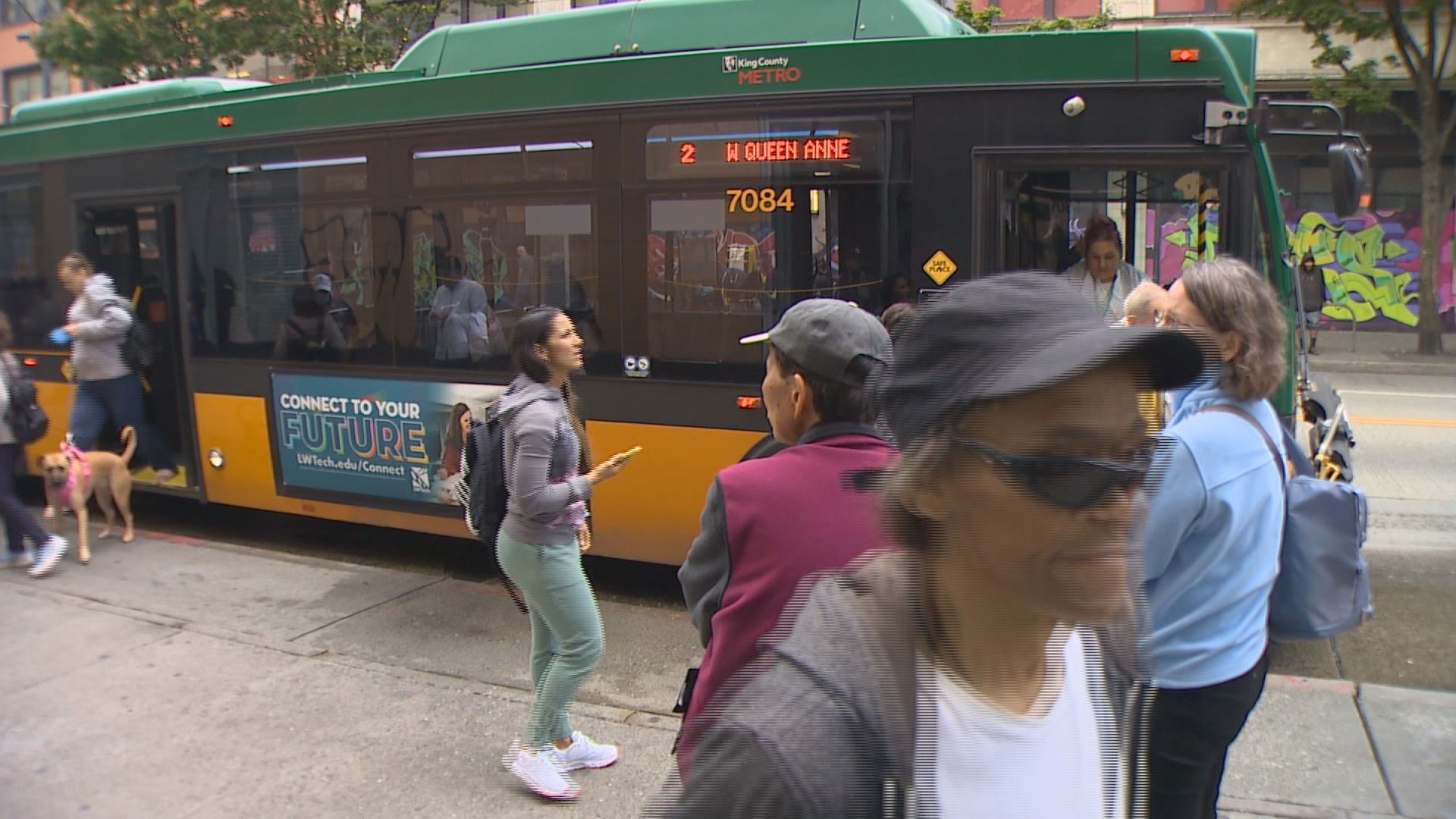SEATTLE — The University of Washington (UW) released Thursday its final report in a first-of-its-kind study on the potential impacts of drug use on transit systems in western Washington.
A UW research team collected air and surface samples for fentanyl and methamphetamine from 11 buses and 19 train cars, according to the report.
The report said the four participating transit agencies identified routes, runs, and time of day when controlled substance use would be most likely to occur. Samples were collected over 28 nights between March 27 and June 22.
UW researchers analyzed the findings from 78 air samples and 102 surface samples. According to the report, of the 78 air samples, 20 (25%) had detectable fentanyl and 100% had detectable methamphetamine. Of the 102 surface samples, 47 (46%) had detectable fentanyl and 100 (98%) had detectable methamphetamine.
The report said, in general, the levels of methamphetamine and fentanyl found are unlikely to cause acute, short-term physical health effects for the riding public. The report said it remains unclear if consistent, long-term exposure poses a risk to worker health — such as potentially faced by operators working a 40-hour week.
The UW research team concluded that although there are no enforceable state or federal regulations for methamphetamine or fentanyl exposure in a workplace, related occupational safety and health standards could apply.
For example, the Environmental Protection Agency's occupational exposure guideline for fentanyl in the air is 0.1 micrograms of fentanyl per cubic meter of air, which one of the 78 air samples collected exceeded.
The Washington State Department of Health's decontamination guideline for methamphetamine is 15 nanograms of methamphetamine per square centimeter, which two of the 102 surface samples collected exceeded.
The research team made recommendations to help reduce the potential for any secondhand exposure, including improved ventilation and air filtration, enhanced cleaning practices and more training for operators.
Researchers emphasized operators’ mental health, especially for those in recovery or who may have experienced trauma related to drug use.
“A work environment that includes drug use and drug smoke can make it harder for transit operators to safely and effectively do their jobs, regardless of the level of exposure that operators may face,” said Marissa Baker, a UW assistant professor of environmental and occupational health sciences who co-led the assessment. "This research is important, as it draws attention to the stressors and exposures that these essential workers face.”
The participating transit agencies said they have already begun to implement changes to reduce the risk of secondhand exposure for riders and operators.
Sound Transit said it is taking several steps to enhance safety and security, some of which are already in progress, including, enforcement of transit code of conduct, more frequent and enhanced cleaning protocols and improved filtration on light rail vehicles.
"We are all relieved to hear from public health officials that the study results indicate there is no public health risk on transit, and we will continue to enact measures to continuously, proactively, and equitably improve our safety and environmental conditions," said Julie Timm, Sound Transit chief executive officer.
King County Metro said its transit security officers are budgeted to increase to 140 and will work to discourage or prevent drug use. The agency said it is in the process of converting its remaining 448 buses from MERV-11 to MERV-13 air ventilators in the coming weeks. The agency's goal is to enhance its cleaning practices.
Community Transit and Everett Transit said they are making similar changes in air filtration and cleaning practices.
The study was commissioned by Sound Transit. King County Metro, Community Transit, Everett Transit, and TriMet following operators' concerns about being exposed to methamphetamine or fentanyl.

